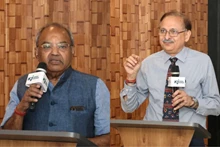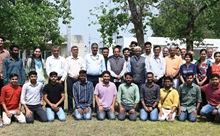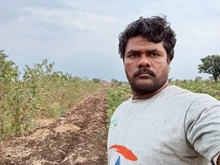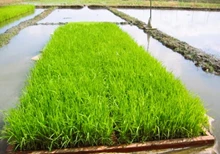
Land Surface Temperature (LST) in Maharashtra reached alarming levels in May, according to a recent analysis conducted by Geoinformatics researchers at WOTR Centre for Resilience Studies (W-CReS).
The study highlights the significant increase in LST levels, particularly in semi-arid regions like Marathwada, Vidarbha, Konkan, and parts of Western Maharashtra, and emphasizes the urgent need for action to address the threats posed to the environment, agriculture, and livelihoods.
LST serves as a critical parameter for monitoring global changes in heat flux and surface temperature. It provides valuable insights into environmental climate change, ecosystem dynamics, and natural resource management. The rise in LST levels has been linked to extreme weather phenomena such as droughts and heatwaves, which have devastating impacts on ecosystems, livelihoods, and biodiversity. The escalating global trend of LST has raised widespread concerns due to its detrimental consequences.
The increasing land surface temperatures in semi-arid regions of India are primarily driven by global warming. Factors such as surface air temperature, soil moisture, soil roughness, vegetation type, elevation, and the balance between shortwave and longwave radiation influence LST. These elements collectively contribute to the determination of LST and its variations across different regions.
Approximately 75 percent of the cultivated area in India falls within the semi-arid tropics, with Maharashtra, Andhra Pradesh, Tamil Nadu, Karnataka, and Rajasthan being particularly vulnerable to drought. These regions are home to 265 million people residing in rural areas, whose livelihoods are affected by insufficient and unpredictable rainfall, extreme temperatures, and intense solar radiation.
The analysis conducted by the researchers focused on Maharashtra's land surface temperature variation using MODIS (Moderate Resolution Imaging Spectroradiometer) LST satellite data acquired through sensors on the Terra and Aqua platforms. The study concentrated on May 2023, a month associated with peak summer temperatures in Maharashtra.
Vijay Solanky, a senior GIS researcher at W-CReS, emphasized the critical state of land surface temperature in Maharashtra based on the findings of the analysis. He highlighted the immediate threats posed to soil health, water resources, agriculture, and the delicate balance of ecosystems. Solanky called for urgent action from all stakeholders to address this pressing issue and implement measures to mitigate the impacts of rising land surface temperatures.
The results of the analysis revealed a concerning rise in land surface temperature across various regions in Maharashtra. Vidarbha, Marathwada, Khandesh, and Western Maharashtra experienced soaring temperatures exceeding 50 degrees Celsius, with some regions even surpassing 48 degrees Celsius. These rising temperatures have far-reaching implications, threatening soil health, water resources, agriculture, and the overall environmental balance.
To address these urgent concerns, WOTR emphasizes the need for immediate action and collaboration among relevant stakeholders. Key strategies include efficient water resource management, adoption of sustainable agricultural practices, increasing vegetation cover through tree and grass planting, and enhanced heatwave preparedness. Furthermore, global efforts to reduce greenhouse gas emissions and combat climate change are crucial for long-term mitigation. Maharashtra has the opportunity to lead the way in securing a sustainable future for its communities and natural resources.
WOTR, a nationally and internationally recognized non-profit and think tank, is dedicated to transforming the lives of millions of poor across India through various initiatives such as participatory watershed development, ecosystems restoration, climate-resilient sustainable agriculture, and integrated water management. Since its establishment in 1993, WOTR has impacted over 4.43 million people cumulatively through its projects, training, and capacity-building activities in 4,395 villages across eight states in India and 63 countries worldwide.
To bridge the gap between science, policy, and practice in developing evidence-based climate risk mitigation and adaptation strategies, the WOTR Centre for Resilience Studies (W-CReS) was established in 2016. By promoting collaboration and knowledge exchange, W-CReS aims to address the challenges posed by rising land surface temperatures and support the development of sustainable solutions for vulnerable communities.











